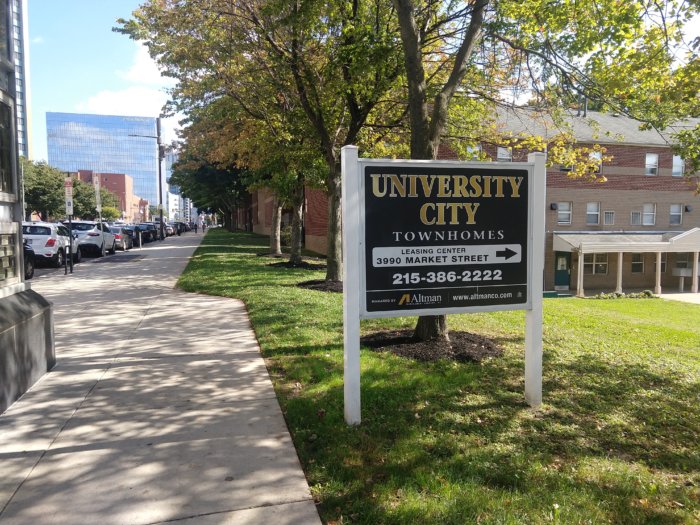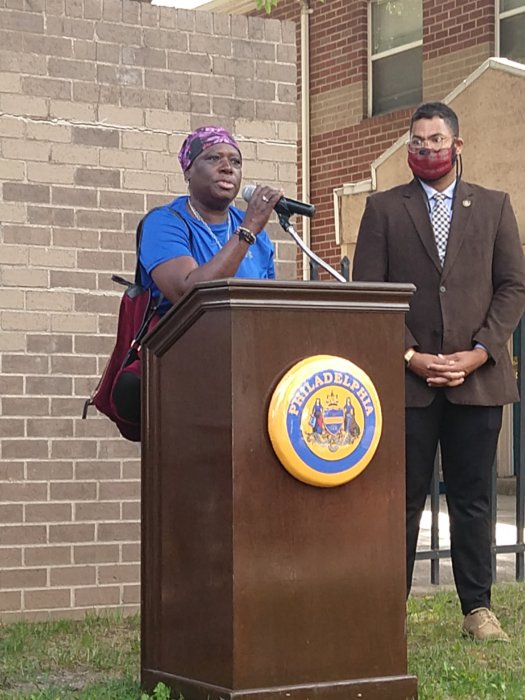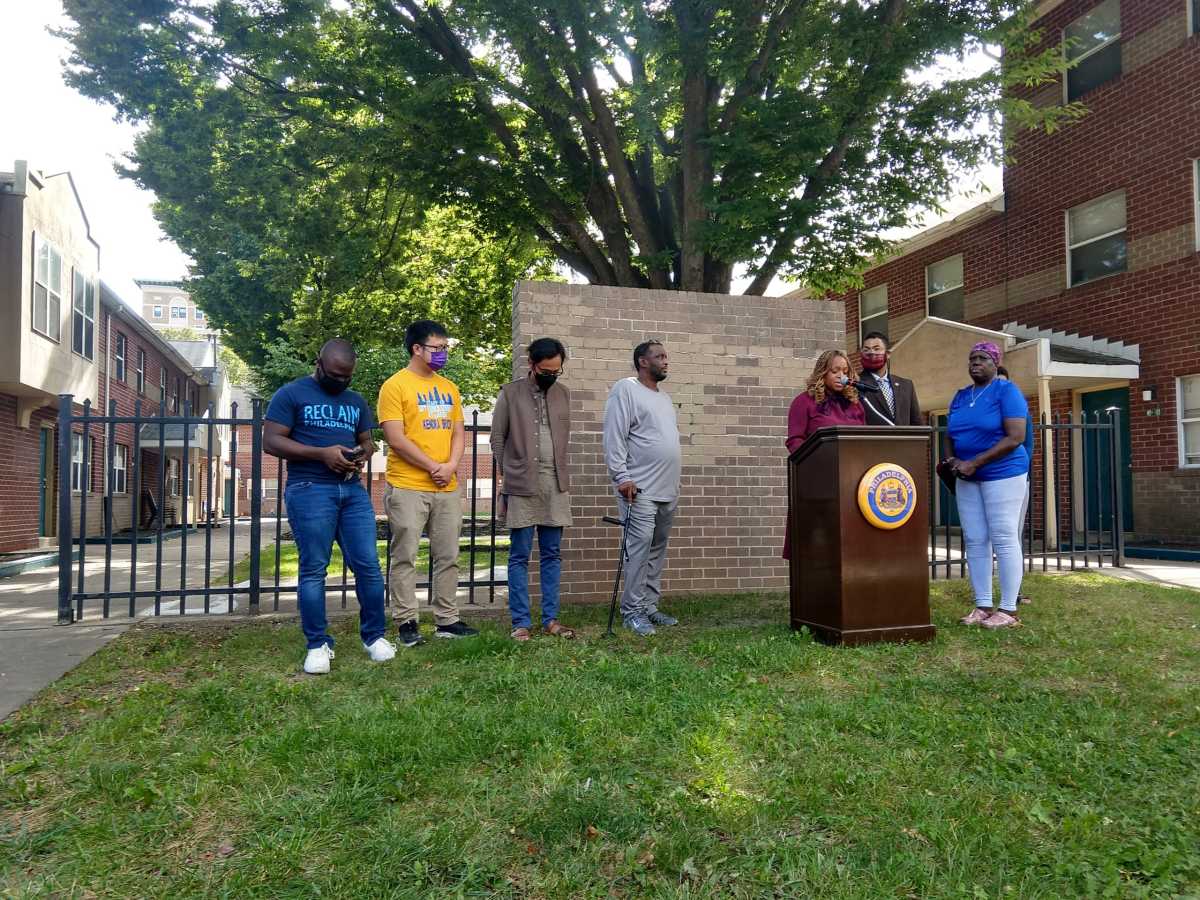For Gerald Bolling, Altman Management Company’s decision not to renew its annual housing contract with the U.S. Department of Housing and Urban Development at the University City Townhomes is the latest battle in a long war against the West Philadelphia neighborhood known as the Black Bottom.
The area, which stands between 33rd and 40th streets below Powelton Avenue, was home to a thriving, prosperous, African American community called the Black Bottom Tribe for much of the 20th century. Though segregated from their wealthier white neighbors, residents of the Black Bottom were living their best lives by the 1950s in a village-like atmosphere that maintained harmony and safety for all.
But the postwar period began urban renewal, and the powerful forces in University City brought bulldozers that would disrupt, dislocate, and displace the community.
“Just more racism,” Bolling said. “We are trying to combat the University of Penn, Drexel, and the University of the Sciences racism against these people who are us, who are called the Black Bottom.”

Late last week, Bolling stood with Councilmember Jamie Gauthier, other civic leaders, and those who dwell in the University City Townhomes protesting Altman’s decision, which will displace longtime residents by next July and cost the city 70 units of affordable housing. Gauthier, whose office organized the demonstration, informed the gathered crowd of new legislation she introduced, proposing a 12-month ban on demolition at the Townhomes site. In addition, the 3rd District representative also hopes to muster up enough support in the Council chamber for a zoning change — an affordable housing mandate that ensures residents aren’t priced out of the neighborhood.
Standing in front of the University City Townhomes, Gauthier had some choice words for Altman Management Company and her fellow city leaders about Philadelphia’s ongoing housing crisis and the racial disparities that continue to displace the Black Bottom neighborhood.
“Considering the history of this site and the scarcity of affordable housing here in the 3rd District, it’s hard to fully capture in words what an injustice this is,” she said.
“I also want to take this opportunity to stress that the affordable housing emergency we’re facing isn’t limited to this site,” Gauthier continued. “Hundreds of developments across Philadelphia, including dozens in my district, have affordability contracts with HUD that could potentially expire within the next five years.”

Gauthier’s legislation will go before a committee hearing at City Council on Oct. 26. But Townhomes residents, several of whom were present at the demonstration, remain worried about their future. Some peppered the Councilmember with questions about her legislation’s potential success or failure and wondered what they should do if forced to move. The property, saved from urban renewal by protests decades ago, costs residents only 30% of their adjusted household monthly income every month, with HUD making up the difference through Section 8 vouchers.
Yet research shows that finding new, affordable housing is near impossible. The Center on Budget and Policy Priorities found that families spend significant time on housing waitlists — with the average time across the nation being eight years.
“I’m hoping [and] praying, we can bring this to a closure — justice — and everyone can still stay,” Townhomes resident Karen Mouzone said to the crowd. “Right now, we need to stay here for the children’s welfare and for everyone that’s sick.”
While many low-income communities like those in the Black Bottom remain under constant threat, some city sections have benefited from a renewed interest in affordable housing over the past few years. Jonathan Rose Companies, a mission-based developer that invests in mixed-income communities with a focus on the health and wellness of its residents, has helped to rebuild Philadelphia over the past few years. In North Philadelphia, the company transformed the Norris Homes project, turning outdated public housing into sustainable, affordable living through a city grant implemented via the PHA.
“What was on the site before was actually 87 low-rise units, which was in pretty terrible shape,” Jenny Wu said. Wu is the managing director of development at Jonathan Rose and was project lead on the Norris Homes project.
“This new building that we put up is 133 units that has a main building and two strips of town houses,” she continued. “And it’s targeted for people who make between 20 to 60% average medium income. So that’s a family of four that’s making $18,000 year to $54,000 a year. And out of that 133 units, 45 units are actually set aside for public housing tenants that used to live on the site.”
According to Wu, Jonathan Rose’s goal is to be a community partner. The company builds affordable housing not only for residents but also to help better entire neighborhoods.
However, for the folks in the University City Townhomes and those in the Black Bottom Tribe, a century-long battle rages on as gentrification, urban renewal, and so-called progress continues to displace people of color in Philadelphia.
“Racism,” Gerald Bolling said. “They don’t want us in our own community. They had no right to be here.”



























